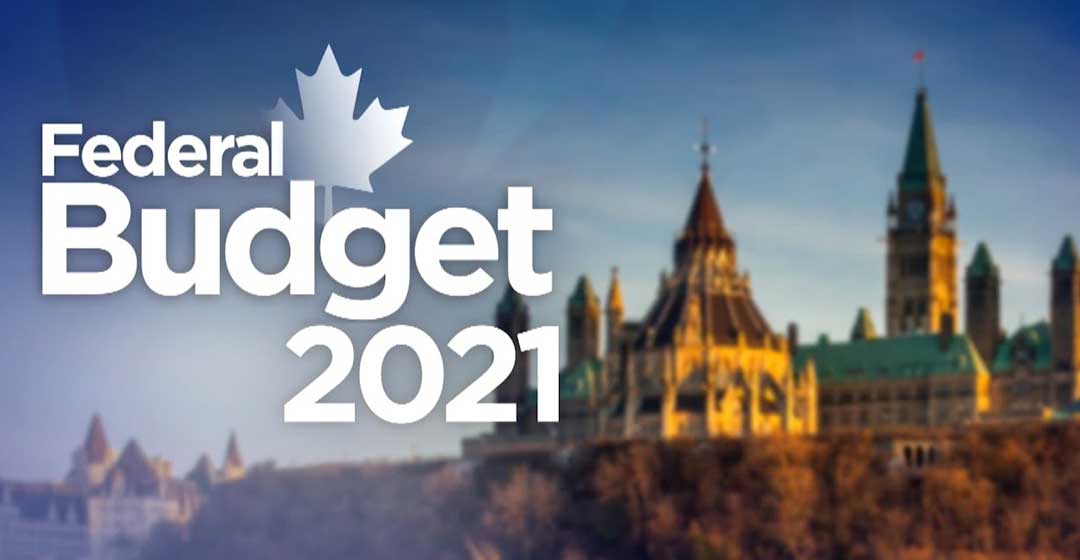
On April 19, 2021, Deputy Prime Minister and Finance Minister Chrystia Freeland tabled in the House of Commons the Liberal Government’s first federal budget in more than two years, A Recovery Plan for Jobs, Growth, and Resilience (Budget 2021). Budget 2021 contains tax measures that provide additional COVID-19 support to Canadian businesses, promote clean energy, introduce new sales and excise tax measures, limit interest deductibility and address certain cross-border financing structures. These measures include:
COVID-19 Support and Recovery
- Extending existing COVID-19 emergency business supports and introducing a new Canada Recovery Hiring Program;
- Promoting immediate expensing of the acquisition of certain depreciable capital property (up to $1.5 million per year) by Canadian-controlled private corporations;
Clean Energy Investment
- Amending the list of eligible Class 43.1 and 43.2 clean energy equipment;
- Offering limited corporate income tax rate reductions for manufacturers of zero-emission technologies;
- Creating a new input tax credit for certain capital investments in carbon capture, utilization, and storage projects;
International Tax/General Corporate Tax
- Introducing new rules to limit the amount of net interest expense that may be deducted in computing Canadian taxable income and to limit the deduction of amounts paid or received under hybrid mismatch arrangements;
- Proposals to overhaul Canada’s transfer pricing rules following the Federal Court of Appeal decision in Her Majesty The Queen v Cameco Corporation(2020 FCA 112);
- Committing to continuing the Government’s work to modernize the general anti-avoidance rule (GAAR);
Sales/Excise Taxes
- Committing to creating an interim digital services tax applicable to digital services businesses and to enact previously announced GST/HST measures applicable to e-commerce platforms;
- Introducing an excise duty on vaping products and a luxury tax on personal use vehicles, boats, and planes;
Compliance/Audit Powers
- Restructuring Canada’s transaction disclosure rules, introducing a new class of “notifiable transactions,” and requiring disclosure of uncertain tax positions; and
- Strengthening the CRA’s audit authority to compel persons to answer all proper questions for any purposes related to the administration or enforcement of, amongst other statutes, the Income Tax Act(Canada) and the Excise Tax Act(Canada).
Source: McCarthy
Newsletters
e-Newsletter – June 2018
NewslettersEvents & SponsorshipArticles & Publications
e-Newsletter – May 2018
NewslettersEvents & SponsorshipArticles & Publications
e-Newsletter – April 2018
NewslettersEvents & SponsorshipArticles & Publications
e-Newsletter – March 2018
NewslettersEvents & SponsorshipArticles & Publications
e-Newsletter – February 2018
NewslettersEvents & SponsorshipArticles & Publications
Events & Sponsorship
No Results Found
The page you requested could not be found. Try refining your search, or use the navigation above to locate the post.
Articles & Publications
Have Unfiled Tax Returns For Years?
Do You Have Unfiled Tax Returns For Years? As for the record, the CRA wants you to file and pay your taxes on time every year. When you cannot do so, you may put yourself at risk of high penalty amounts and collection tasks like bank levies or wage garnishments. We at...
Old Age Security One-Time Payment Only
Old Age Security One-Time Payment Only. You will receive the one-time payment for older seniors if you were: born on or before June 30, 1947, and eligible for the Old Age Security pension in June 2021 If you have applied for the Old Age Security pension but have not...
CRA Notice of Objection
CRA Notice of Objection (NOO) Once you file your taxes, you receive a Notice of Assessment and later a Notice of Reassessment. You have two options: Pay the taxes owing File a CRA Notice of Objection (NOO). The CRA is not always right; when you disagree, you can...
All You Need to Know About Trust Funds in Canada
All You Need to Know About Trust Funds in Canada A trust is a vehicle for holding and passing on the family property. As such, it typically serves at least one of two purposes: It can reduce a family's taxes by shifting income to members in lower tax brackets, and it...
Non-Resident Canadian Tax Clearance Certificates
People who are not Canadian Residents for Tax Purposes may be subject to a withholding tax when they sell Canadian property. All non-resident Canadian for tax purposes may be subject to this withholding tax if they sell real estate in Canada. This holds if they own...